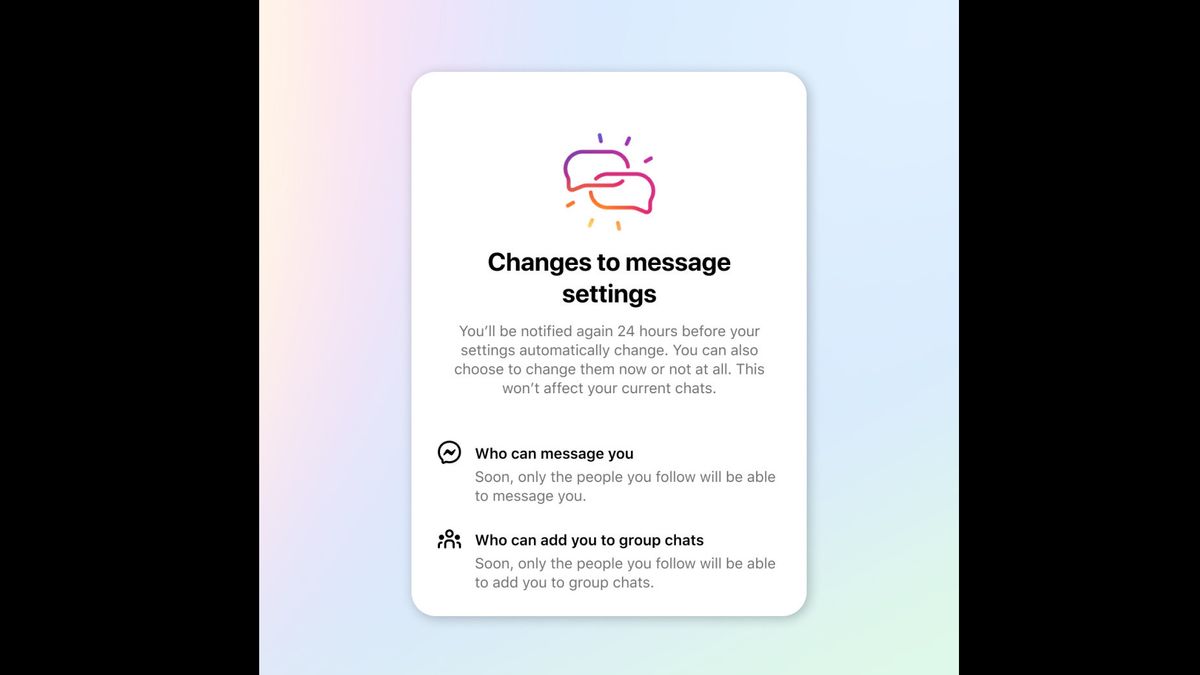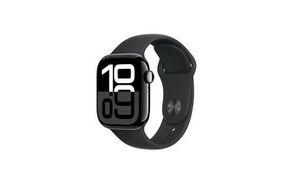JAKARTA Meta Platform Inc., the owner of social media platforms such as Instagram and Messenger, announced a security policy update by defaulting the user's ability under the age of 18 to receive messages from anyone they don't follow or don't connect directly.
This change is part of Meta's ongoing efforts to provide 'adjusted experience of youth' across its apps.
This update expands existing Meta policies that don't allow adults to send messages to teens who don't follow them. That is, now no one can send direct messages to teens on Instagram or Facebook Messenger who don't follow them.
"With this new default setting, teens can only receive messages or be added to group chats by people they've followed or connected to, helping teens and their parents feel more confident that they won't receive messages from people they don't know on Direct Messages (DM)," Meta said in a blog post.
This default arrangement will apply to all teens under the age of 16 (or under 18 in some countries). Those who already use Instagram will get a notification at the top of their feed telling them about the change in this message settings.
"We are also making changes to the teenage default settings in Messenger, where users under 16 years old (or under 18 in some countries) will only receive messages from Facebook friends or people connected via phone contacts, for example," Meta added.
In addition to the security update, Meta announced that parents who use existing surveillance tools now have the ability to approve or reject their teens' requests to change the privacy and security default settings. Previously, parents were only notified when their children made changes.
"For example, if a teenager who is being watched tries to convert their account from private to public, changing sensitive content control from 'less' to'standard', or - now - trying to change their DM settings to hear from people they haven't followed or connected to, their parents will receive a notification encouraging them to approve or reject the request," Meta said.
"Just like all of our parents' surveillance tools, this new feature is meant to help facilitate conversations off the network between their parents and teens, as they explore their shared online life and decide what is best for them and their families," added Meta.
This update comes as social media platforms continue to face reviews of its impact on younger users. On Wednesday, January 24, British Prime Minister Rishi Sunak was faced with demands to consider banning the use of social media and smartphones for those under the age of 16.
SEE ALSO:
Conservative Parliamentary Memberwatir Cates said there had been a'significant increase' in teens' mental health since 2010 and urged the adoption of stricter measures in response.
"Since 2010, all over the world in English, there has been a significant increase in the mental health of teens, juvenile suicide attempts, and children are addicted to pornography," Cates.
"The UK has a strong tradition of making laws to protect children from serious threats to their security and well-being. So, does (the Prime Minister) agree with me that it is time to consider social media bans and maybe even smartphones for those under the age of 16?"
In response, the Prime Minister pointed to the Online Safety Act, which passed into law last year, and said it included measures designed to protect children online, with sector regulator Ofcom currently developing guidelines and code of practice for tech companies to follow.
The English, Chinese, Japanese, Arabic, and French versions are automatically generated by the AI. So there may still be inaccuracies in translating, please always see Indonesian as our main language. (system supported by DigitalSiber.id)


















